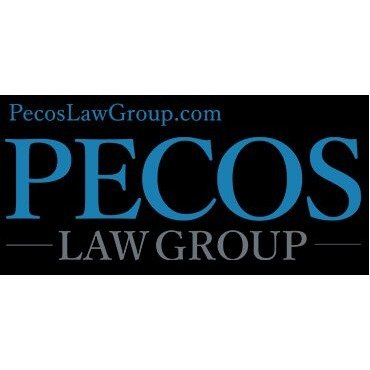Best Public-Private Partnerships (PPP) Lawyers in Nevada
Share your needs with us, get contacted by law firms.
Free. Takes 2 min.
Or refine your search by selecting a city:
List of the best lawyers in Nevada, United States
About Public-Private Partnerships (PPP) Law in Nevada, United States
Public-Private Partnerships, commonly known as PPPs, are collaborative agreements between government entities and private sector companies to finance, design, build, operate, and sometimes maintain public projects. In Nevada, PPPs are primarily used for large-scale infrastructure projects such as highways, public buildings, water treatment facilities, and other essential services. These partnerships aim to leverage the efficiency, innovation, and resources of the private sector while fulfilling public needs under governmental oversight. The legislative environment in Nevada supports PPPs through specific statutes and government agency guidelines, ensuring that such collaborations are transparent, sustainable, and beneficial to the community.
Why You May Need a Lawyer
Engaging in a public-private partnership in Nevada involves navigating complex legal, regulatory, and contractual frameworks. Common situations where you may require the expertise of a lawyer include:
- Drafting and negotiating PPP agreements to ensure fair allocation of risk and responsibilities - Understanding compliance with state and federal laws, including procurement and public finance regulations - Resolving disputes between public and private parties - Advising on land use, zoning, environmental, or labor law implications - Navigating project financing and investment structures - Addressing issues related to intellectual property and confidentiality in project operations - Handling project transfers, termination, or significant amendments to existing contracts
A qualified lawyer helps protect your interests, reduces legal risks, and ensures that your project adheres to all applicable laws and regulations.
Local Laws Overview
Nevada has enacted several statutes and established policies to regulate PPPs within the state. Key legal considerations in Nevada PPPs include:
- Nevada Revised Statutes (NRS) Chapter 338 and Chapter 408 address public works, procurement, and transportation projects, granting specific authority for PPP arrangements - The Nevada Department of Transportation (NDOT) sets detailed procedures for unsolicited and solicited proposals, bid processes, and qualifying project criteria - Mandatory procurement standards to promote fair competition and prevent conflicts of interest - Requirements for public transparency, including public hearings and the publication of certain PPP-related documents - Risk allocation measures, such as performance guarantees, insurance requirements, and dispute resolution mechanisms - Regulatory oversight to ensure compliance with environmental, labor, and public safety laws
Local governments, including counties and municipalities, may have additional ordinances guiding PPPs, especially for non-transportation infrastructure projects.
Frequently Asked Questions
What is a Public-Private Partnership (PPP) in Nevada?
A PPP in Nevada is a formal collaboration between a governmental agency and a private company to deliver infrastructure or public services, typically governed by a written agreement specifying each party’s roles and responsibilities.
Are there specific laws regulating PPPs in Nevada?
Yes, Nevada Revised Statutes include provisions specifically governing the formation, operation, and oversight of PPPs, particularly in public works and transportation sectors.
Who can initiate a PPP project in Nevada?
Both public entities (like state agencies or local governments) and private sector companies can initiate PPP projects. Private entities may also submit unsolicited proposals for qualifying projects.
What types of projects qualify as PPPs in Nevada?
Most commonly, PPPs in Nevada are utilized for transportation infrastructure, public facilities, water and wastewater treatment plants, and other essential public services.
How are PPP projects selected and approved?
PPP projects undergo a rigorous selection and approval process involving proposal submission, competitive bidding when required, project evaluation, public notice, and compliance checks as outlined by state agencies such as NDOT.
What are the primary risks associated with PPPs?
Potential risks include cost overruns, project delays, regulatory compliance issues, revenue shortfalls, and disputes between the public and private parties over contractual terms.
How are disputes in PPP projects resolved?
Disputes are generally addressed through contractual dispute resolution mechanisms like negotiation, mediation, arbitration, or, if necessary, litigation in state courts.
Can a PPP agreement be amended or terminated?
Yes, amendments and terminations are possible but usually require mutual agreement or fulfillment of pre-established contract provisions, including proper notice and compensation procedures.
What is the role of public input in PPP projects?
Public input is often solicited through hearings and public disclosures, ensuring transparency and community involvement in major PPP decisions.
Why should I consult a lawyer before entering a PPP?
A lawyer can help clarify your rights and obligations, ensure compliance with laws, assist in negotiation, and help manage legal risks throughout the lifespan of the partnership.
Additional Resources
For more information and support regarding PPP law in Nevada, consider reaching out to these resources:
- Nevada Department of Transportation (NDOT) - PPP Program Office - Nevada Governor’s Office of Economic Development - Nevada State Purchasing Division - Local city or county public works offices - State Bar of Nevada for lawyer referrals and public legal education - U.S. Department of Transportation - Build America Bureau, for federal PPP guidance - National Council for Public-Private Partnerships, for educational materials and best practices
Next Steps
If you are considering involvement in a Public-Private Partnership in Nevada, take the following steps:
- Clearly define the scope and objectives of your project - Gather information about relevant Nevada statutes, regulations, and local ordinances - Consult with an experienced PPP lawyer who understands Nevada law and local practices - Prepare necessary documentation for proposal submission or assessment - Engage with relevant governmental agencies early in the process - Ensure all compliance, transparency, and community engagement requirements are met - Establish clear contractual terms and dispute resolution procedures as you move forward
Navigating PPPs can be complex, but with sound legal advice and thorough preparation, your project can contribute positively to Nevada’s infrastructure and economic growth.
Lawzana helps you find the best lawyers and law firms in Nevada through a curated and pre-screened list of qualified legal professionals. Our platform offers rankings and detailed profiles of attorneys and law firms, allowing you to compare based on practice areas, including Public-Private Partnerships (PPP), experience, and client feedback.
Each profile includes a description of the firm's areas of practice, client reviews, team members and partners, year of establishment, spoken languages, office locations, contact information, social media presence, and any published articles or resources. Most firms on our platform speak English and are experienced in both local and international legal matters.
Get a quote from top-rated law firms in Nevada, United States — quickly, securely, and without unnecessary hassle.
Disclaimer:
The information provided on this page is for general informational purposes only and does not constitute legal advice. While we strive to ensure the accuracy and relevance of the content, legal information may change over time, and interpretations of the law can vary. You should always consult with a qualified legal professional for advice specific to your situation.
We disclaim all liability for actions taken or not taken based on the content of this page. If you believe any information is incorrect or outdated, please contact us, and we will review and update it where appropriate.
Browse public-private partnerships (ppp) law firms by city in Nevada
Refine your search by selecting a city.










